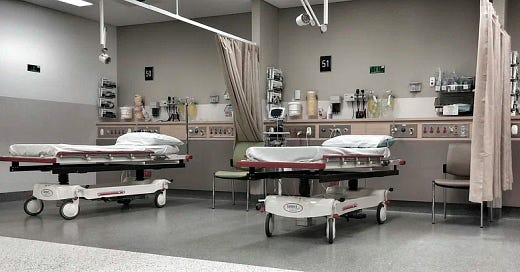An article in the Journal of the American Medical Association from November 6, 2023, shows that staying overnight in the emergency room is dangerous for an older person who is sick enough to be admitted to a medical ward. Older individuals with signs of frailty may have their risk of dying double from staying in the ER waiting for a bed. An editorial i…
Keep reading with a 7-day free trial
Subscribe to Slow Aging and Delay Chronic Disease Development to keep reading this post and get 7 days of free access to the full post archives.




